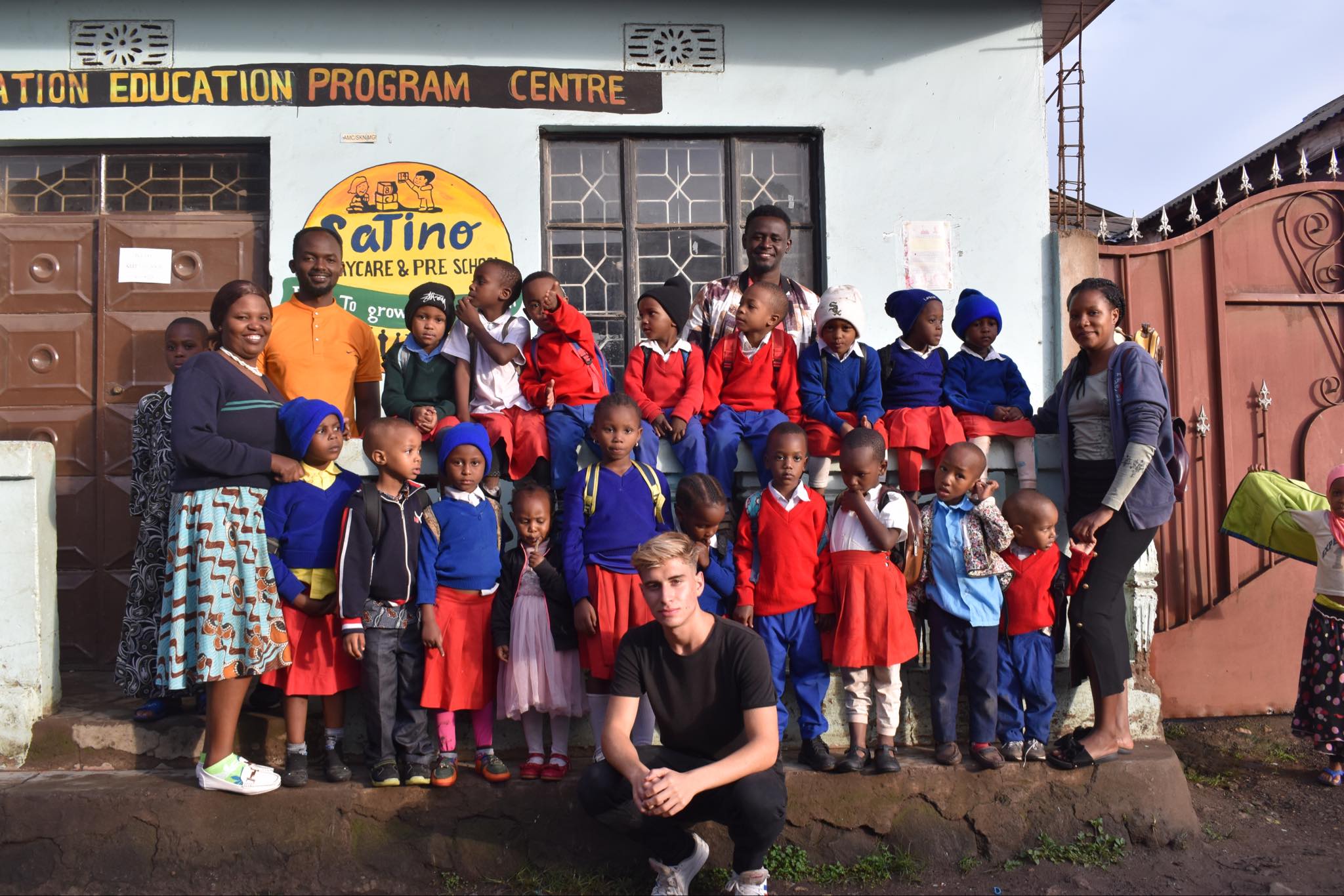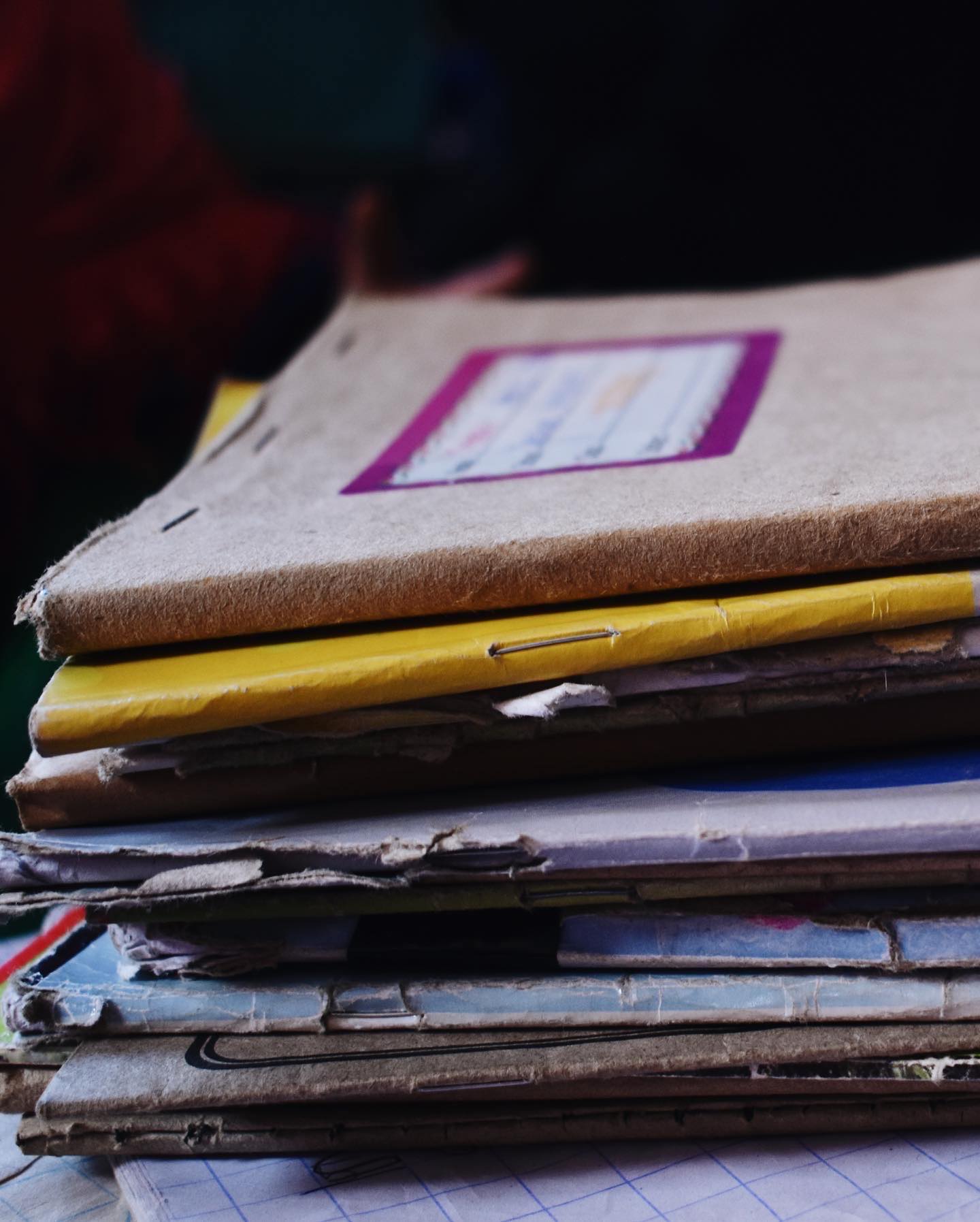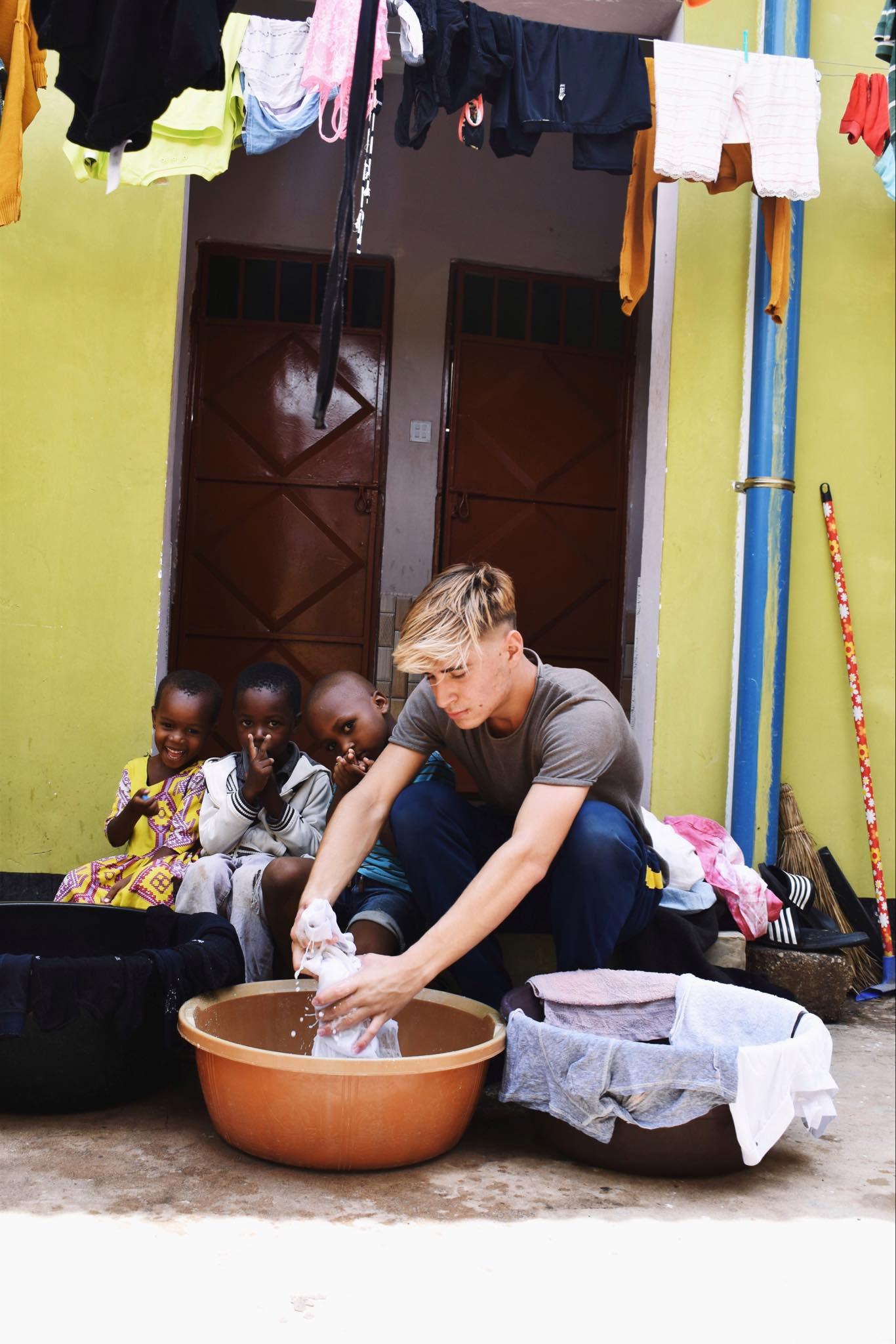From Hvar to Tanzania: Young Croatian Volunteers to Help Poor Children
December 5, 2020 – As Croatia counts a record number of coronavirus cases every day, young Croatian Romano Malečić decided to set out on a big journey from Hvar to Tanzania to volunteer as a teacher. On the occasion of the International Volunteer Day which is celebrated today, here is his story from 9000 kilometers away.
While his peers from Hvar were enrolling in college, 19-year-old Romano Malečić had different dreams. In Croatia, taking a gap-year is not as common as in other countries, but Romano decided to do just that – take a break for a year or two after high school and try volunteering in Africa.
"I knew that after graduating from high school I didn't want to enroll in college right away, because I just wouldn't be ready. All this was inconceivable and ridiculous to me, that at the age of 18 when I was just beginning to define and develop as a person, I have to make one of the most important decisions in my life – what college to enroll in or what to do for the vast majority of my life," said Romano honestly, who did not give in even under pressure from the professors to enroll in any college, just to study something.
A last-minute, but firm decision
At no cost did he want to go the standard way to enroll in college after graduating from high school, find a job in the profession after graduation, start a family, and not experience anything interesting in life. For this reason, the choice to pause the year for Roman was quite logical, no matter how hard it was for the people around him.
He says that while making the decisions, he always "goes with the flow", so he made his decision to go to Africa at the last minute, and he planned and realized the whole trip in just one week.

The pandemic did not frighten him at all. Watching European countries close again and tighten epidemiological measures, he looked for a place where he could escape. When he learned that Tanzania was open without any restrictions, and since it had always been his dream to volunteer in that very African country, the question was – now or never.
He bought a plane ticket to Dar es Salaam, the capital of Tanzania, on Wednesday, October 28, told his parents about his decision on Thursday, and took off on Sunday, November 1. Like any worried parent, Roman’s parents initially disapproved of his idea of going to Africa in the middle of a pandemic. However, they tried to understand his decision and eventually let him develop and grow, follow his dreams, regardless of the fear and pressure of society, for what is Romano infinitely grateful to them.
'Children here are honest and happy'
Before the flight, he had to be vaccinated against hepatitis A, typhoid fever, and yellow fever. The trip to Arusha, his destination where he is currently located, took a full 3 days. From Hvar, he first went to Vienna, from where he had a flight via Istanbul to Dar es Salaam, the capital of Tanzania. Upon arrival in Tanzania, he stayed in Dar and finally, after a few days, set off on a 15-hour bus ride to his last stop – Arusha.
"Intensive preparations started only 4 days before the trip, on the day I bought the plane ticket. I didn't know much, except that I'm going, and I planned most of it along the way (except vaccinations), including the volunteering. I decided to look for volunteering opportunities when I arrived in Tanzania," says Romano, not knowing that he would dare to go on such a trip.

Romano found a volunteering project through the organization SATINO (Save and Teach the Innocent). Now, he helps poor children and teaches them English and math. As he previously explained for Slobodna Dalmacija, employees and volunteers take care of 65 children aged three to six and 25 between the ages of 13 and 17 from seven in the morning until eight in the evening. They are not abandoned, but they come from low-income families and any help is welcome, especially since they have to set aside seven dollars each month for the organization in which Romano volunteers. For some, it is a ridiculous amount, but for these children and their families, it is very unattainable.
As he says, children in Tanzania differ from our children only in the living conditions in which they live.
"There are people who often say that I could have stayed and volunteered in Croatia, and I am aware that there are children in Croatia who also have a tough childhood, but these children depend on the help of others. The hygienic minimum is not met here because there is no soap or running water in the school, and to learn English, they depend on volunteers because there are not enough qualified teachers. They don't have much, they are poor, but honest and happy, because they are not aware that there may be something better out there for them," says Romano.
"They are most interested in white people or 'muzungu' as they often shout after you in passing, which means 'white man' or 'aimless wanderer'. Kids run after you trying to touch you, especially your hair, out of curiosity because you simply stand out whether you want to or not. Those looks, touches, and feats might be ‘too much’ for someone, and they were for me, especially in the beginning while I was still adjusting to a new environment, but when you get used to it and realize that most kids are well-meaning and just curious because they don’t see whites every day, you get used to it. And they love it when you carry them.
He constantly tells African children stories about Croatia, especially about his native Hvar, but also about Dalmatia, food, and fish. The indispensable topic of conversation is, of course, football and Luka Modrić, their great football idol.
This is what his average day of volunteering in Africa looks like:
"From Monday to Friday, I'm already in school at about 8 am because my first class is from 8:30 am to 10:30 am. I'm teaching preschool children, from 3 to 6 years old, 25 of them. Depending on the day, with the help of educator Jackline, we teach them either Swahili, or English, or math. Mostly it’s the basics, numbers, and letters.
After the preschool education and breakfast (fried bananas or ‘ndizi za kukaanga’ as they say here), from 11 am to 1 pm I have a second lesson, English, to prepare 24 children for the high school, what I run on my own.
Around 2 pm, we have lunch together with the children. Most often it is either rice, polenta, bananas, or beans, ie carbohydrates because they are the cheapest. After lunch, the kids go to bed, and we always have some work in between, cleaning, or correcting their exercises and tests," says Romano.
Around 5, when the children wake up, they play and dance until 8 when the parents pick up their children.
After a long day of teaching and playing with the kids, Romano goes home. If it’s Thursday, Friday, or Saturday, then he goes to the club and even to African weddings, where he’s been twice already.
Tanzania is fighting the pandemic in its own way. Their president, after testing watermelon, papaya, and goat on COVID-19, and after testing them "positive," declared the coronavirus pandemic a scam. In Tanzania, therefore, there are currently no restrictions or social distancing, and Romano says he has not seen a single face mask in this one month.
Romano believes that "if an African country can cope with a pandemic, the highly developed West can definitely do too." At the moment, everything is open in Tanzania, cafes, restaurants, and clubs, and people live normally.
'I want to help and there is no going back'
Romano modestly admits that sometimes, despite all the variations of bananas and rice, he misses his mother's food. But he doesn't want to split hairs, because, during his one-month stay in Tanzania, he saw things that, he says, opened his eyes and he could not remain indifferent to the unspoiled smiles of children.
"Behind those smiles, unfortunately, lies a difficult reality that these children are not aware of because they do not even know that there is something better somewhere. As I was lecturing, I saw the materials they use for learning, worn-out pencils taped with duct tape, one eraser for 20 children, torn and printed notebooks, crumbling backpacks, and clothes and shoes not to mention. I will only tell you that uniforms are worn to conceal their clothing and thus to mask material inequality," says Romano, who was therefore encouraged to launch a charity action to collect donations for children's necessities, but also the renovation of their school building.
Namely, the space they are currently using is rented, so it is expensive and unsustainable. They started building their own school building 3 years ago, but construction was suspended due to insufficient material resources.

"I think that every child has the right to the basics, including education. It is the only chance for them, I think, the only way out that from this sadly corrupt system that has no interest in the people of this beautiful but massively exploited continent living as befits the 21st century. Education is something that no one can take away from them, it is 'the most powerful tool for changing the world', as Nelson Mandela would say," says Romano. It is for this reason that he wants to help these little ones, 65 of them, on whose future we can influence.
The school building in the making
"Even though I was aware of it before, I realized how privileged I am in life just because I was born a little further north, on another continent. I learned to appreciate more what I have and manage without the basics (running water, shower, toilet), and I also perfected hand washing. As a result, I met a different culture, tested my limits, and looked at things from a different perspective – a gratitude perspective," concludes Romano, hoping that little by little, both he and other volunteers will contribute to positive change through their work.

Before Tanzania, he had no previous volunteer experience, but, by all accounts, this is certainly not his last volunteering project in the world. Romano jokingly says he'll come back when the clubs re-open in Europe, but since it is not possible to plan much in advance at the moment, he will go "one step at a time" and plan to return to Hvar along the way.
Romano collects donations for children to buy them school materials, food, and hygiene supplies. If you also want to help, you can make a payment to his account: HR5223400093234047872.
He also launched a fundraising campaign to build a new school building, where you can also help with your donation.
All photos are from Romano Malečić's private archive.
For the latest travel info, bookmark our main travel info article, which is updated daily.
Read the Croatian Travel Update in your language - now available in 24 languages.
Ever Wonder what a Dinamo Song Sounds Like in Tanzania?
This coming Sunday Zagreb will host the biggest derby of Croatian football, with Dinamo Zagreb hosting Hajduk Split, with the ‘blues’ receiving support from Tanzania


